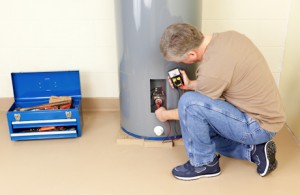 With today’s high energy costs, we’re all looking for ways to save money on cooling and heating our homes, and there are certain things that get repeated again and again in any discussion of efficiency. The problem is, many accepted “facts” about energy efficiency are actually myths!
With today’s high energy costs, we’re all looking for ways to save money on cooling and heating our homes, and there are certain things that get repeated again and again in any discussion of efficiency. The problem is, many accepted “facts” about energy efficiency are actually myths!
Despite people’s best intentions that may be behind these notions, many things you’ll hear about how to save money on heating and cooling not only don’t work, but may actually cost you money.
Here are five of the most common myths about energy savings.
Myth: Installing air conditioners or furnaces rated as “energy-efficient” will automatically save you money.
Fact: High-efficiency cooling and heating systems can definitely pay for themselves over time – but they must be properly installed by professionals and correctly size to your residence to do so. That’s why you should always consult R.S. Andrews if you’re thinking of upgrading your HVAC equipment – our technicians can help you make sure your equipment is the right size for your home and has been correctly installed in order to run as efficiently as possible.
Myth: An appliance that is turned off isn’t using electricity.
Fact: Electrical appliances of many types, from televisions to computers to coffee makers, continue to draw power whenever they’re plugged in, regardless of whether they’re turned off or not. To avoid having to unplug appliances frequently, we recommend using a power strip to plug in several appliances at once which can then be turned off via the power strip’s switch.
Myth: Using an electric space heater can save money on heating bills.
Fact: The most cost-effective way to heat your home is with a gas furnace or heat pump that can heat the whole house. Electric heaters can help but are inefficient and underpowered for the amount of electricity they are able to consume. They are handy to have in areas of the house that just never seem to warm up, but in general they will not lower your heating costs.
Myth: You can save money on heating bills by closing heating vents in unoccupied rooms.
Fact: The only effect closing heating vents in one room will have on your system is to redirect air to other vents in the house. If there are any leaks or weak points in your duct work, they can be made worse by closing the vents in one room. We recommend keeping all of your vents open to prevent back pressure from being applied to your system’s fan, which can significantly reduce efficiency.
Myth: You can make your HVAC system more efficient by sealing leaks with duct tape. It is called “duct tape,” after all!
Fact: Duct tape deteriorates quickly when applied to warm and especially dusty areas – like your ducts. Instead, use metal tape or mastic sealant, available at any local hardware store, to seal any leaks or holes in your ducts.
These myths about energy efficiency aren’t the only ones out there, but they’re some of the most prevalent, so we hope you’ve enjoyed our attempt to clear them up for you. If you have any questions about saving energy and reducing energy costs in your home, call R.S. Andrews today – our heating, cooling and plumbing technicians have been the most trusted in Atlanta for over 40 years, and we’re always happy to answer any questions you may have.
For even more information on saving money and energy, check out our Helpful Homeowner Tips!

